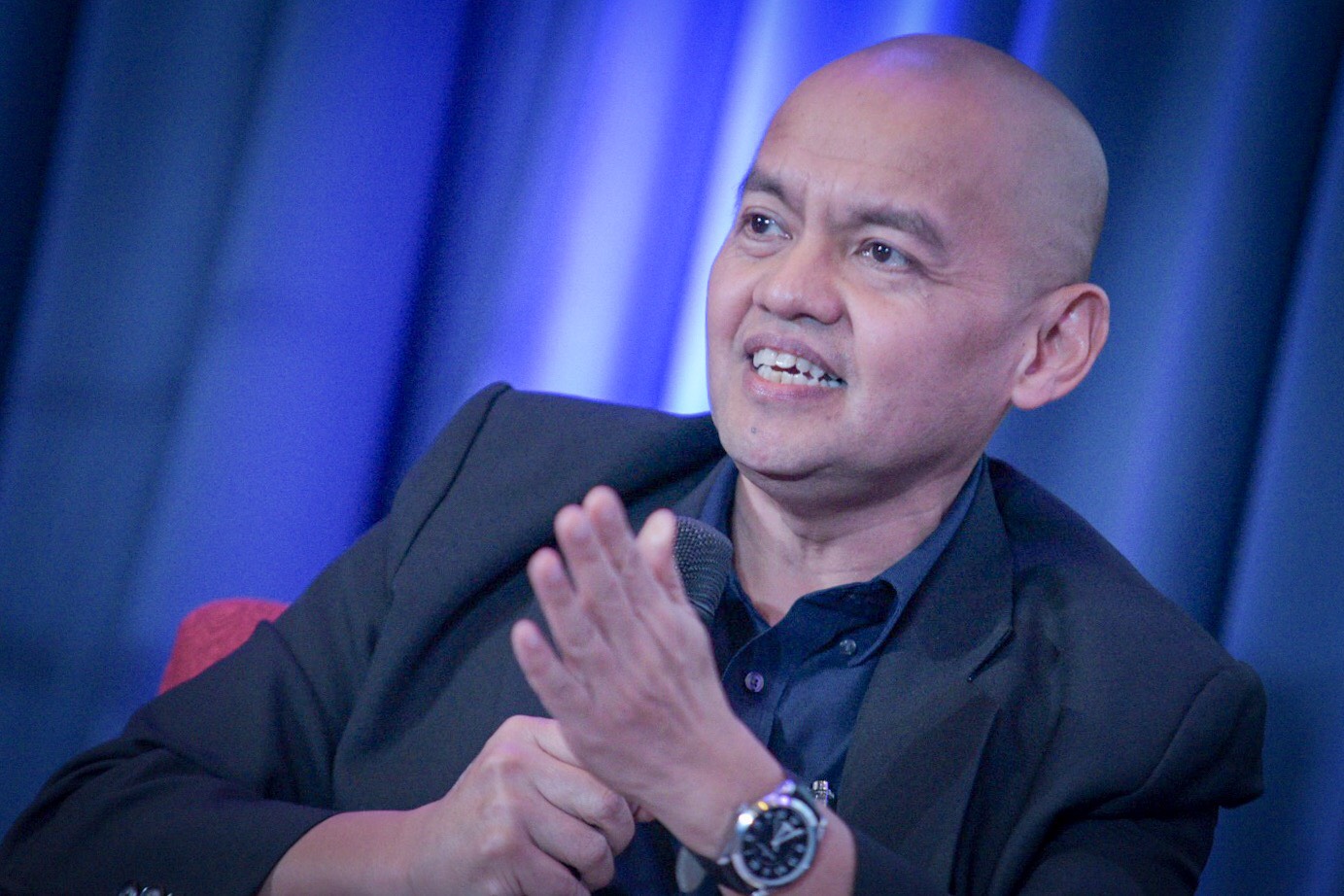
MANILA, Philippines – “Holding the line also involves knowing. It also involves critical analysis of the information that you get.”
This was the message of Supreme Court Associate Justice Marvic Leonen on Monday, February 12, during the Democracy and Disinformation forum organized by Inquirer at the Ateneo Law School when asked about how the judiciary branch is “holding the line” amid attacks and criticisms.
While emphasizing the responsibility that goes with their task of imparting justice, Leonen also noted the judiciary branch is not a stranger to criticisms. In fact, he argued that its legitimacy “resides in its ability to be able to cause more criticisms because, then, it can ferret out the truthful position that we come out with.” (READ: Is the Duterte gov't attacking PH constitutional bodies?)
“To be impartial does not mean to be ignorant. You have to inform yourself. You cannot decide the cybercrime law if you cannot operate a computer. You cannot decide a cyberlibel if you do not know what a "like" is in Facebook,” Leonen added.
The Supreme Court, where the judicial power is vested upon, is going through a lot of turbulence this past year.
In August last year, for example, two impeachment complaints were filed against Chief Justice Maria Lourdes Sereno over supposed culpable violations of the Constitution and allegations of betrayal of public trust.
Analysts said that such moves may be considered as direct assaults against the judiciary, which is a separate, independent and co-equal branch of the executive and legislative.
On freedom of expression
But even the courts are not alone in facing this problem.
“What happens in a society when the traditional institutions that guard the truth – the media, courts, academic community – become skewed, less independent, challenged, threatened? What happens in that kind of society? What do you want law, courts to do?” Leonen asked.

This question raised by Leonen is timely given the recent attacks to media groups like Rappler, Inquirer, Vera Files, and Kodao Productions.
Early in January, the Securities and Exchange Commission moved to revoke the license of Rappler to operate. On the other hand, the websites of Vera Files and Kodao Productions were hacked and taken down after the releasing reports that were critical of the government. (READ: Journalists should always stand up against fake information)
"Holding the line" has become, in fact, the mantra of many groups that carry the same fight for press freedom. (READ: [OPINION] Hold the line for whom?)
Given this context, Leonen urged the public “to use your constitutional rights and invoke them. Your role is to use your fundamental freedoms to express criticism of court decisions which you may disagree with.”
The associate justice urged the public that freedom of expression is their guard against the tendency of the government to abuse its powers – either through prior restraint or subsequent punishment.
He also reminded that public, however, that this comes with a cost: "Open, robust, and uninhibited discussion is rarely soothing...Given the inequality of our society and the stakes of those who benefit from the status quo, democratic deliberation is often brusque."
Navigating social media
What makes democratic deliberations and the exercise of the freedom of speech more complicated, of course, is social media.
"Social media is a forum which I think your court and statutes will still have to grapple with. I think this is the ongoing discussion in senate hearings," Leonen acknowledged.
Globally, democratic institutions are struggling to address the problem of "fake news" and its exponential rise through social media. This worldwide trend has posed a threat to the state of democracy in different countries, including the Philippines. (READ: Fake news law can be 'dangerous' – former Al Jazeera correspondent)
Leonen echoed what many researchers have been emphasizing about the two sides of social media– that while it democratizes access at the surface level, it also creates echo chambers and has the "power to create digital amnesia and dull critical thinking."
This is why Leonen also encouraged the public to be discerning of their actions on the digital platform.
"Social media is generally the crowdsourced speech of the owners of the platform. internet companies and their forums are not entirely neutral conduits of content..We have to be aware of all these and a guard against them. This society depends on that," Leonen said.
Leonen concluded his speech by reminding the public to maximize and exercise their freedoms by amplifying narratives that matter – ones that tackle "poverty, disempowerment, inequality in a society that valorizes individualism, wealth, and the quick fix." – Rappler.com